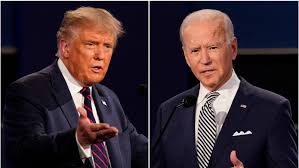World
Angelina Jolie trashes Trump’s immigration ban in op-ed
New York: Saying she was proud of “our country’s history of giving shelter to the most vulnerable people”, Hollywood actress Angelina Jolie has said in an op-ed that Americans have “shed blood” for the cause of human rights — a direct attack on President Donald Trump’s controversial immigration ban. In an opinion piece to the New York Times on Thursday, the actress who is also a special envoy to the UN High Commissioner for Refugees, said: “Americans have shed blood to defend the idea that human rights transcend culture, geography, ethnicity and religion.”
“The decision to suspend the resettlement of refugees to the US and deny entry to citizens of seven Muslim-majority countries has been met with shock by our friends around the world precisely because of this record.” Trump on January 27 temporarily banned citizens and refugees from Syria, Iran, Iraq, Libya, Sudan, Somalia and Yemen to enter the US for a period of 90 days resulting in widepread condemnation and protests across the world.
“As the mother of six children, I very much want our country to be safe for them, and all our nation’s children. But I also want to know that refugee children who qualify for asylum will always have a chance to plead their case to a compassionate America,” the 41-year-old Jolie wrote. Jolie adopted three of her children — Maddox Chivan , Pax Thien, Zahara Marley — from Cambodia, Vietnam and Ethiopia, respectively.
“We can manage our security without writing off citizens of entire countries – even babies – as unsafe to visit our country by virtue of geography or religion,” she wrote. Jolie went on to say: “It is simply not true that our borders are overrun or that refugees are admitted to the United States without close scrutiny.” “Refugees are in fact subject to the highest level of screening of any category of traveller to the United States.” The actress also pointed out that only less than 1 per cent – of all refugees in the world are ever resettled in the US.
“There are more than 65 million refugees and displaced people worldwide. Nine out of 10 refugees live in poor and middle-income countries, not in rich Western nations. There are 2.8 million Syrian refugees in Turkey alone. Only about 18,000 Syrians have been resettled in America since 2011.” According to Jolie, this is the worst refugee crisis since World War II. “There are countries in Africa and the Middle East bursting at the seams with refugees.” “‘America is committed to the world because so much of the world is inside America,’ in the words of (former US President) Ronald Reagan,” Jolie wrote. “If we divide people beyond our borders, we divide ourselves.”
“Shutting our door to refugees or discriminating among them is not our way, and does not make us safer. Acting out of fear is not our way. Targeting the weakest does not show strength,” she added. Jolie concluded by saying: “We all want to keep our country safe. So we must look to the sources of the terrorist threat…We have to make common cause with people of all faiths and backgrounds fighting the same threat and seeking the same security.” “This is where I would hope any president of our great nation would lead on behalf of all Americans.”
World
Lockdowns in China Force Urban Communities to Defy Censorship and Vent Frustration Online

Shanghai’s rich middle class is leading a wave of online dissent over the strict and prolonged lockdowns imposed in various parts of the country. Chinese internet censorship is struggling as patience is wearing thin in many urban centers, coming up with creative forms of online protests.
Social Media Posts Revealing Lockdown Tension in Shanghai
Drawn-out lockdowns are nothing new in China as authorities insist with the nation’s zero-Covid policy since the start of the pandemic. Currently over This time around, however, metropolitan areas like Shanghai are increasingly difficult to keep quiet, given that its more than 25 million residents have seen weeks of total isolation along with food shortages and many other service interruptions.
Dozens of towns and reportedly over 300 million Chinese citizens have been affected by lockdowns of different severity. As expected, urban netizens have been most outspoken over their difficulties by finding creative ways to get around state censorship and bans placed on topics, news comments and spontaneous campaigns.
Shanghai residents have been using mobile proxies and hijacking seemingly unrelated hashtags to talk about healthcare issues, delivery failures and the overall severity of their situation. The “positive energy” that the Chinese government wants to transmit during the recent prolonged series of lockdowns does not come naturally to those counting food supplies and online censors are working hard to filter words, trending topics and undesired social media sharing.
WeChat groups and message threads are under constant monitoring. Posts questioning the zero-Covid approach have been quickly deleted, including by leading Chinese health experts like Dr. Zhong Nanshan. Video footage is soon censored and protests and investigations are quickly made to disappear.
Where this has not worked, officials have exposed banners with warnings and outright threats like “watch your own mouth or face punishment”, while drones have been patrolling the city skies. Yet, if anything, this has led to further tensions and unspoken confrontation with Shanghai’s educated and affluent middle class.
Creative Online Solutions Harnessing Civic Energy
Announcements by Chinese social media that they would be publishing the IP addresses of users who “spread rumors” have not helped either. Tech industry research has shown that much of Asia’s tech-savvy population has a habit of using mobile proxies and other privacy tools, quickly finding workarounds to browse the internet freely and talk to the world about the hottest topics.
The sheer volume of forbidden posts is already a challenge for the very censorship system, experts explain. Unable to track all trending hashtags, state workers overlook topics that speak about the US, Ukraine or other popular news. Linking human rights elsewhere to their situation, Chinese online dissidents establish their informal channels and “hijack” the conversation to share personal or publicly relevant information about the Covid suppression in their town.
Sarcastic and satirical posts still dominate. Others hope to evade the censors by replacing words from famous poems or the national anthem. One thing is certain – social media, when harnessed with the right creativity, has proven its ability to mount pressure on the government in even some of the most strictly controlled tech environments like China.
























